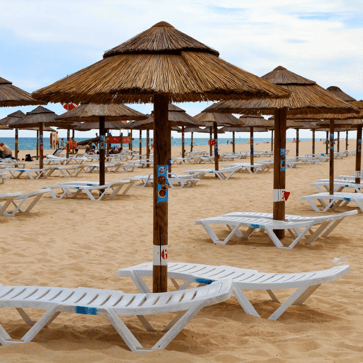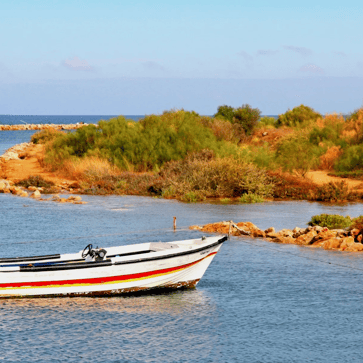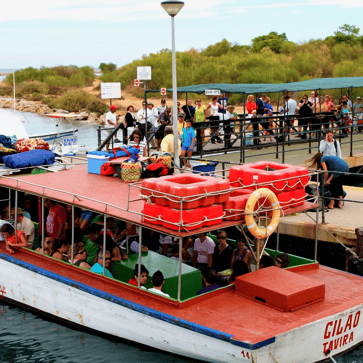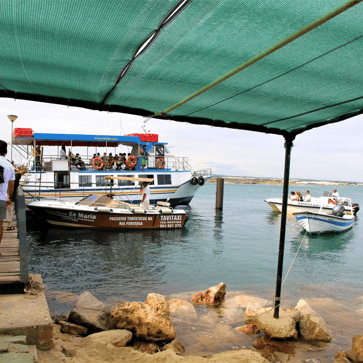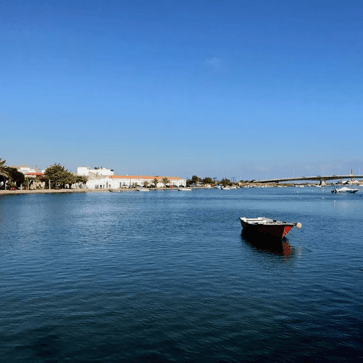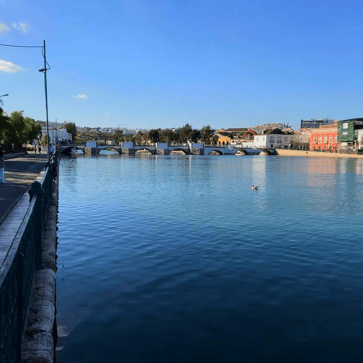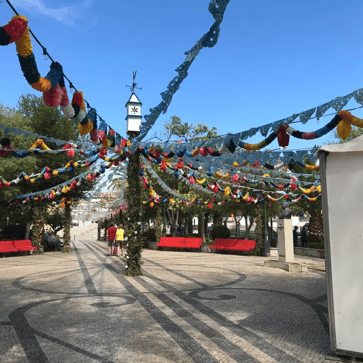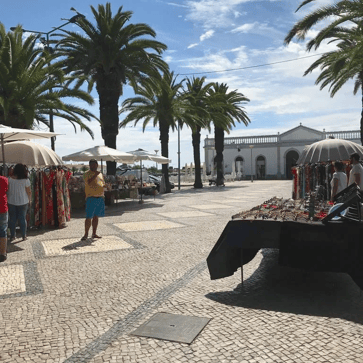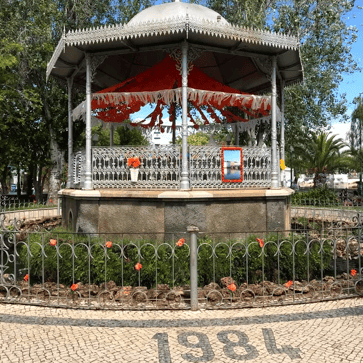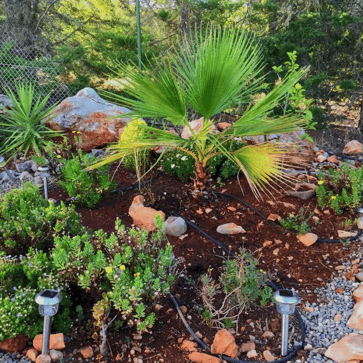About Tavira
History
Tavira along with Lagos is one of the most architecturally attractive towns in the Algarve and its origin dates back to around 2.000 BC. During the occupation of the Algarve by the Moors this town was considered of great importance due to its fishing industry. Dom Paio Peres Correia took it from the Moors in anger in 1242 after seven of his principal Knights were killed during a period of truce. In the 17th Century the port in its river was of considerable importance, shipping produce such as salt, dried fish and wine. Like most of the Algarve its buildings were all virtually destroyed by the earthquake of 1755.
Description
The town has since been rebuilt with many fine 18th Century buildings along with its 37 churches. A Roman bridge links the two parts of the town across the River Gilão. The church of Santa Maria do Castelo is built on the site of a Moorish Mosque and in it is the tombs of Dom Paio Peres Correia and his seven Knights. Its original economic reliance on the fishing industry has now been surpassed due to the change in the migration patterns of the tuna fish. The population is in the region of 20,000 inhabitants supporting a military base whilst the surrounding area is still very rural and underdeveloped. This is now changing due to the demands of the tourist industry and hence there are openings of golf courses in the near vicinity. The beach for this town lies past the salt pans and is accessed by ferryboat which sails to the picturesque sandbar island known as Ilha de Tavira.
Locations Nearby
Near Tavira are the areas known as Cabanas and Pedras del Rey, both small beachfront villages catering specifically for the tourist. In the small village of Luz de Tavira there is one of the finest examples of Manueline craftsmanship around the southern door of the Parish Church. Santa Luzia drives its name from a shipwrecked Italian effigy of the Virgin Mary and is a very small unspoilt village with a fort. Not far from Torre de Aves are the ruins of a Roman villa. East of Tavira overlooking the sea is an original and traditional village named Cacela-a-Velha frequented by the Phoenicians in the past and later possessed by the Knights of Santiago in 1240.
Events
June - Popular Saints Festivities
July, August and September – Handicraft, Food and musical festivals in Tavira
August 8th to 11th - Feira de Santa Luzia - Santa Luzia
October 4th to 6th - Feira de São Francisco
24th of June - Municipal Day
Street Markets – every Sunday – find more details in The Resident newspaper published Thursdays. The Resident will keep you informed of all activities around the Tavira area and the Algarve in general.
Useful Phone Numbers
Town Hall - 281 325 021
Fire Brigade - 281 322 122
Police - 281 220 22
Hospital - 281 324 023
Emergency Treatment - 281 324 023
Ambulance - 281 325 473
Tourist Office - 281 322 511
Banks
Normal Hours: 8.30am-3.0pm Monday to Friday
Weekends: Closed all day
Commission Charged per transaction regardless of amount you exchange
Bureau de Change in Tavira does not charge exchange commission.
Clothing
Take light clothes in summer, plus a jersey or two for cool evenings. In winter it is wise to take a warm jacket or a coat, though during daytime you are likely to need no more than a jersey, if that. Casinos and some luxury restaurants prefer men to wear jacket and tie. Elsewhere casual wear is the norm. Whatever time of year you go, remember to take sunglasses.
Electricity
The supply is 220/240 Volts AC.
Plugs have two round pins and most British and American appliances will need an adaptor.
Climate
The Algarve has a warm climate with over 3,000 hours sunshine per year, more than the Costa Brava, Mallorca or French Riviera. Summer temperatures are however below the extremes of those in the Mediterranean countries and sea breezes keep temperatures down in the evenings.
Currency
The Portuguese currency is the Euro. Traveler's cheques are the safest way to carry money. If lost or stolen they can be replaced. The exchange rate for traveler’s cheques are slightly more favorable than they are for cash. Major credit cards are widely accepted in restaurants and at petrol stations. Automatic cash dispensers are generally available. Nearly all restaurants and shops change traveler’s cheques, but the commission tends to be higher than the bank rate.
Emergency Services
Dial 112 free from anywhere to contact
Police
Fire brigade
Ambulance
If you need a Doctor or Dentist the maids can be a great help.
Driving
EU driving licences or international driving licences are valid in Portugal.
Have your documents always with you.
Drive on the right-hand side of the road.
Seat belts must be worn. Mobile telephone use is prohibited while driving.
Car speed limits
In build up areas 50km/h
Side roads 90km/h
Highways 100km/h
Motorways 120 km/h
Alcohol limit
0.5 gm/l, which is lower than in UK. Any fines must be paid on the spot.
